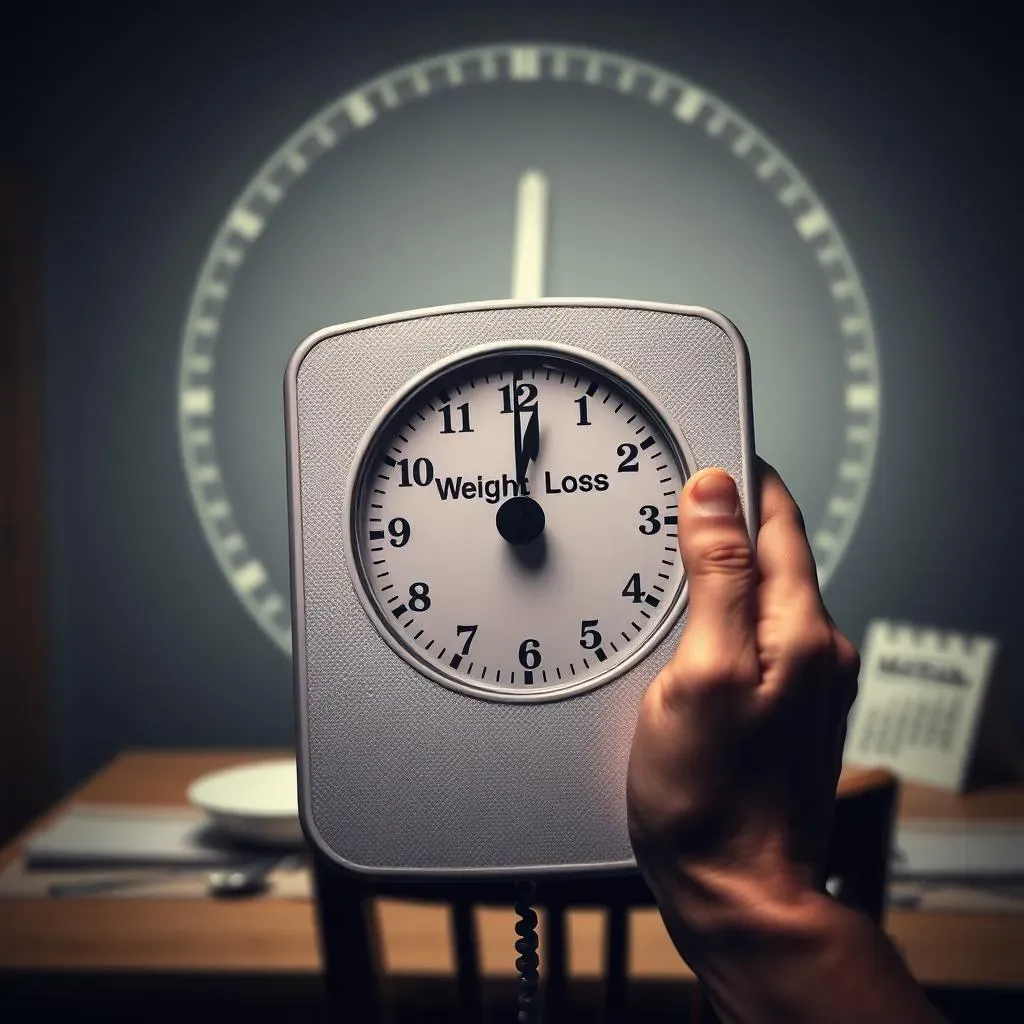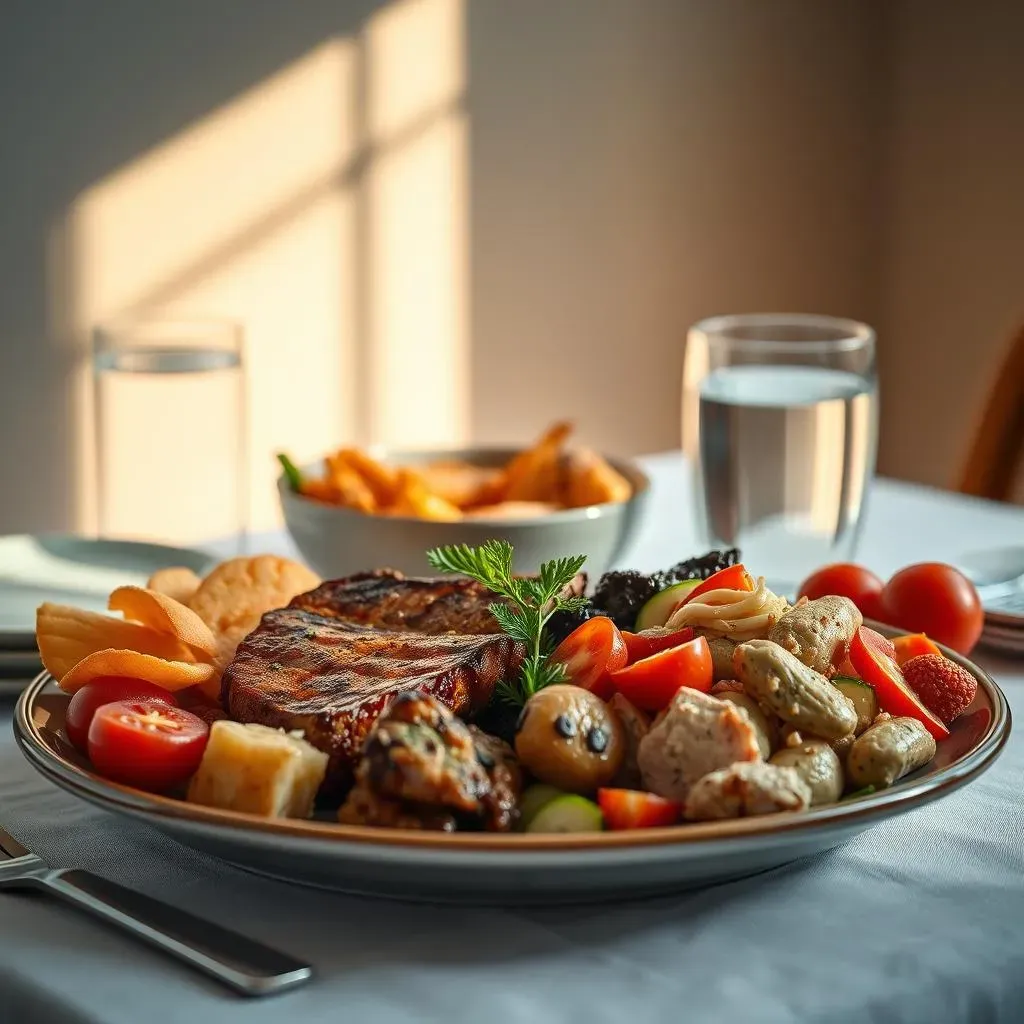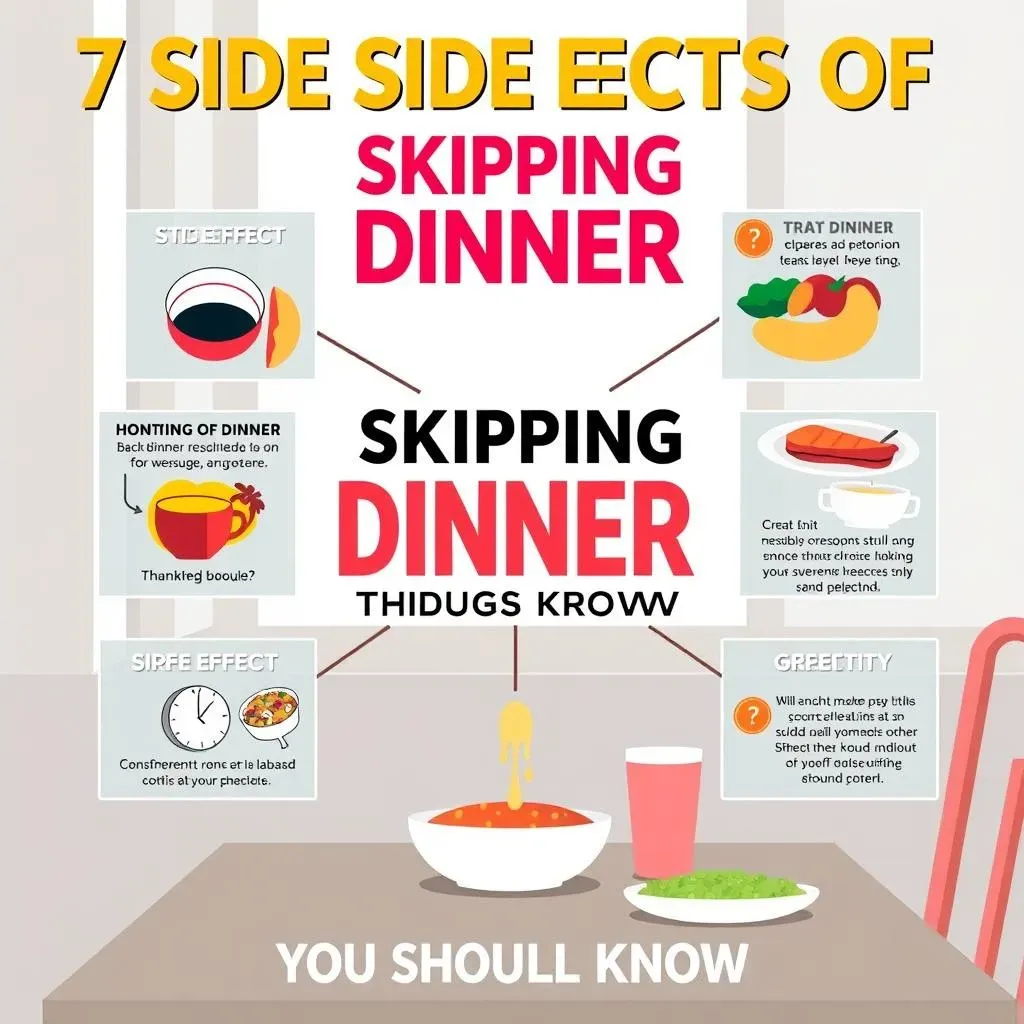Table of Contents
Ever thought about skipping dinner to shed those extra pounds? It seems like a simple enough idea, right? Just cut out one meal and watch the weight melt away. But hold up, before you decide to ditch your evening grub, let’s talk about what really happens when you make a habit of skipping dinner. We're going to explore the often-overlooked consequences of this trend. The question "is it good not to eat dinner" is more complex than you might think. It's not just about calories; it's about how your body functions and how your eating habits can impact your overall health. We'll break down the science, look at the potential pitfalls, and even touch on some surprising side effects you might not expect. So, if you're pondering whether to skip that last meal of the day, stick around. You might just change your mind. We will cover why dinner is important, what happens when you skip it and the side effects that could come with it.
What Happens When You Skip Dinner to Lose Weight?

What Happens When You Skip Dinner to Lose Weight?
The Initial "Success"
so you've decided to skip dinner to cut calories and lose weight. Initially, you might see the scale budge. It's simple math, right? Less food equals fewer calories. Your body starts tapping into its stored energy, which can lead to a quick drop in weight. This initial success is often what hooks people into thinking skipping dinner is a good long-term strategy. But, and it's a big but, this isn't sustainable or healthy.
Think of your body like a car. If you don't give it enough fuel, it will eventually start sputtering. Skipping dinner might give you that quick win, but it sets the stage for a whole bunch of problems down the road. Your body is smart; it will adjust and not in the way you want. It's like trying to win a marathon by only training for a 100-meter dash. It might work for a bit, but you’ll crash and burn eventually.
The Downward Spiral
So, what happens after that initial drop? Well, your body isn't too happy about being starved. It starts to slow down your metabolism to conserve energy, making it harder to lose weight in the long run. This means you’re not burning as many calories as you used to, even when you're not skipping meals. It's like your body is saying, " if you’re not going to feed me, I’m not going to work as hard."
Another issue? Your hunger hormones go haywire. Ghrelin, the hunger hormone, starts shouting louder, making you crave all the sugary, high-carb stuff. You might find yourself reaching for that late-night snack, undoing all your efforts, and probably eating more than you would have at a regular dinner. It is a vicious cycle. You are not actually winning by skipping dinner.
Initial Effect | Long-Term Consequence |
|---|---|
Quick Weight Loss | Metabolism Slows Down |
Calorie Deficit | Increased Cravings |
Tapping into Stored Energy | Hormone Imbalance |
Why Is Dinner Important for Your Body?

Why Is Dinner Important for Your Body?
Fueling Up After a Long Day
so you’ve been hustling all day, right? Your body has been working hard, whether you were hitting the gym, typing away at a desk, or chasing after the kids. Dinner isn't just a social thing, it's your body's chance to refuel and repair. Think of it like this: your car needs gas to keep running, and your body needs food to keep going. Without dinner, you are running on fumes. Your muscles need protein to rebuild, your brain needs nutrients to function, and your body needs a healthy dose of everything to recover from the day’s activities. Skipping dinner is like trying to drive cross-country on an empty tank—you might make it for a little while, but eventually, you’ll break down.
And it's not just about energy; it's also about balance. Dinner provides essential vitamins and minerals that your body needs. These aren't just "nice to haves," they're necessities. Magnesium, B vitamins, and other micronutrients are crucial for everything from nerve function to energy production. Without a proper dinner, you might start to feel sluggish, tired, and even a bit off. It's like trying to build a house with missing bricks—it just won't hold up.
Setting the Stage for Sleep
Here's another thing people often miss: dinner helps set the stage for a good night's sleep. A balanced meal, including some complex carbohydrates and protein, can help regulate your blood sugar levels throughout the night. This means you're less likely to wake up in the middle of the night feeling hungry or restless. When your blood sugar is stable, your sleep is usually better.
On the flip side, going to bed hungry can mess with your sleep cycle. Your body might release stress hormones like cortisol, which can make it hard to relax and fall asleep. It’s like trying to sleep in a noisy room—you might eventually drift off, but it won’t be as restful. A good dinner sets the tone for a peaceful night, allowing your body to repair and recharge properly. It's not just about how much you eat; it's also about when and what you eat.
Dinner's Role | Benefits |
|---|---|
Refueling | Provides energy for recovery and repair |
Nutrient Intake | Delivers essential vitamins and minerals |
Sleep Regulation | Stabilizes blood sugar and promotes restful sleep |
7 Side Effects of Skipping Dinner You Should Know

7 Side Effects of Skipping Dinner You Should Know
1. Low Energy Levels
so you've decided to ditch dinner, thinking it's the fast track to weight loss. But here's the kicker: your body needs fuel to function. Skipping dinner is like trying to run a marathon on an empty stomach. You might start off okay, but soon enough, you're going to hit a wall. I'm talking about that mid-afternoon slump that feels like you're wading through mud. Your brain feels foggy, your muscles feel weak, and you just can't seem to get anything done. It's not just about feeling tired; it's about your body not having the energy it needs to get through the day. You're basically running on empty.
And it's not just the immediate energy crash you have to worry about. When you constantly skip dinner, your body starts to conserve energy. That means your metabolism slows down, making it harder to burn calories, even when you do eat. It's like your body is saying, " if you're not going to feed me regularly, I'm going to start hoarding everything I can." You might think you're saving calories, but you're actually making it harder to manage your weight in the long run. It's a classic case of short-term gain, long-term pain. So, you end up feeling tired and not losing weight, what a deal.
2. Messed Up Hunger Cues
Ever noticed how when you skip a meal, you end up feeling ravenous later? That's your body's way of telling you it needs fuel. Now, if you start skipping dinner regularly, your body’s hunger signals get all messed up. You might find yourself feeling incredibly hungry at odd times, and when you finally do eat, you’re much more likely to overdo it. It's like your body is trying to make up for lost time, and it doesn't always do so in a controlled way. Your brain starts screaming for anything it can get its hands on, and that’s usually not healthy food.
And it's not just about feeling hungry. Your hunger hormones, like ghrelin, start going haywire. Ghrelin tells your brain that you’re hungry, and when you skip dinner, it becomes a relentless messenger, sending signals that are hard to ignore. This leads to cravings for sugary, high-carb foods, which can be a nightmare for weight loss. It’s like your body is trying to trick you into eating all the wrong things at all the wrong times. You can see how this would be a problem when you are trying to manage your weight, right?
Side Effect | Impact |
|---|---|
Low Energy Levels | Fatigue, reduced physical and mental performance |
Messed Up Hunger Cues | Increased cravings, overeating, poor food choices |
3. Sugar and Carb Cravings
So, you've skipped dinner, and now your body is in panic mode. What does it crave? Not a salad, that’s for sure. It's all about the quick energy hit, the stuff that sends your blood sugar soaring. We're talking sugary snacks, chips, and all those high-carb goodies that are basically the opposite of what you need if you're trying to lose weight. Your body is desperate for fuel, and it goes for the easy, quick fixes, even if they are bad for you. It is a survival mechanism, but not a helpful one if you are trying to lose weight.
These cravings can be incredibly hard to resist, especially when you're tired and hungry. It's like your willpower has gone on vacation, leaving you at the mercy of your cravings. So, you might find yourself reaching for that late-night snack, undoing all your efforts to cut calories. It's a vicious cycle. You skip dinner, crave junk food, eat the junk food, and then feel guilty. It is an endless loop that doesn't help you with anything. It is a trap.
4. Digestive Issues
Skipping dinner doesn’t just mess with your energy and cravings; it can also wreak havoc on your digestive system. Your body is designed to digest food at regular intervals. When you skip meals, your digestive system gets confused. It starts producing stomach acid even when there’s no food to break down, which can lead to nausea, heartburn, and even indigestion. It’s like a car idling with nowhere to go; it's not efficient, and it can cause problems.
And it's not just about acid reflux. Skipping meals can also throw off your bowel movements. Some people experience diarrhea, while others get constipated. It's like your digestive system is throwing a tantrum because you're not feeding it right. Irregular digestion can make you feel bloated, uncomfortable, and just plain miserable. It's a sign that your body is not happy with the lack of consistency. So, you are not just hungry, but also uncomfortable.
Side Effect | Impact |
|---|---|
Sugar and Carb Cravings | Leads to unhealthy snacking and hinders weight loss |
Digestive Issues | Nausea, diarrhea, constipation, and general discomfort |
5. Increased Risk of Eating Disorders
Here’s a serious one: skipping dinner can increase your risk of developing an eating disorder. When you start viewing food as the enemy, it can lead to unhealthy patterns of eating. Skipping meals, especially dinner, can be a gateway to more restrictive behaviors. It is a slippery slope, and you might not realize it till it is too late. You start thinking that the less you eat, the better. But that is not the case, and it is a dangerous idea.
People who skip meals are more vulnerable to disorders like anorexia, bulimia, or even orthorexia, which is an obsession with healthy eating. These conditions can have severe physical and mental health consequences. It's not just about wanting to lose weight, it's about developing an unhealthy relationship with food that can be incredibly damaging. It can be a very dangerous road to go down, and it should be avoided at all cost.
6. Disrupted Sleep Patterns
So, you've skipped dinner and now you’re trying to sleep? Good luck with that. Going to bed hungry can mess with your sleep cycle. Your body is designed to have stable blood sugar levels throughout the night, and when you skip dinner, those levels can fluctuate, leading to restless nights. You might find yourself tossing and turning, or waking up in the middle of the night feeling hungry and unable to go back to sleep. It is a terrible experience.
And it’s not just about feeling hungry. Skipping dinner can trigger the release of stress hormones like cortisol, which can make it hard to relax and fall asleep. It’s like your body is in fight-or-flight mode when you should be resting. Sleep deprivation can lead to a whole host of other problems, like fatigue, poor concentration, and even mood swings. It’s a domino effect, and it all starts with skipping dinner. You end up tired, cranky, and not rested at all.
Side Effect | Impact |
|---|---|
Increased Risk of Eating Disorders | Vulnerability to anorexia, bulimia, orthorexia, and other harmful eating patterns |
Disrupted Sleep Patterns | Restless nights, difficulty falling asleep, fatigue, and mood swings |
7. Increased Anxiety and Cortisol Levels
Finally, skipping dinner can lead to increased anxiety and higher cortisol levels, especially if you end up eating junk food at night. Your body sees the lack of food as a stressor, and that can trigger the release of cortisol, the stress hormone. This can make you feel more anxious, irritable, and on edge. It's like your body is constantly in a state of alert, which is not good for your overall well-being. It is not a fun experience at all.
And if you do end up caving and eating junk food at night, the sugar rush and subsequent crash can make your anxiety even worse. It's a vicious cycle of stress and poor eating habits. Your body is looking for balance, and when you don't feed it properly, it ends up in a state of constant anxiety. It is not a good way to live, and it could have a negative effect on your health. It is not worth it.
Is It Good Not to Eat Dinner? The Truth About Skipping Dinner

Is It Good Not to Eat Dinner? The Truth About Skipping Dinner
The Verdict
So, after all of this, is it good not to eat dinner? The short answer is a resounding no. While it might seem like a quick fix for weight loss, skipping dinner is a terrible idea. It messes with your energy levels, throws your hunger cues out of whack, and can lead to all sorts of unhealthy eating habits. It's like trying to build a house on a shaky foundation, it might stand for a little while, but it's not going to last. Your body needs regular meals to function properly, and dinner is a crucial part of that. It is not just about weight loss; it is about your overall well-being. It is about being healthy and happy.
Instead of skipping dinner, focus on eating a balanced meal that includes protein, complex carbohydrates, and healthy fats. This will help you feel full, provide your body with the nutrients it needs, and prevent those late-night cravings. It's about nourishing your body, not depriving it. Think of it as giving your body the fuel it needs to thrive, not just survive. It’s a marathon, not a sprint, and skipping dinner is like trying to run a marathon without training. It's not going to end well. You need to be consistent with your meals, and you need to listen to your body. So, listen to your body and eat dinner.
Action | Benefit |
|---|---|
Eat a Balanced Dinner | Maintains energy, regulates hunger, supports overall health |
Avoid Skipping Meals | Prevents unhealthy eating patterns and negative side effects |
The Final Bite: Is Skipping Dinner Really Worth It?
So, after all that, the answer to "is it good not to eat dinner" is a resounding no. While the idea of cutting calories by skipping a meal might seem appealing, it's clear that it's not a sustainable or healthy approach. From messing with your energy levels and digestion to increasing your risk of eating disorders, the potential downsides far outweigh any perceived benefits. Your body needs fuel throughout the day, and dinner is an important part of that. Instead of skipping, focus on making healthy, balanced choices for all your meals. Your body will thank you for it, and you might even find that weight management becomes easier when you're not battling those late-night cravings and energy crashes. It’s about nourishing your body, not depriving it.